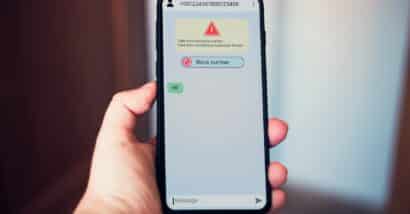 California invasion of privacy law prohibits secret call recording practices—that is, recording customer phone calls without giving adequate warning.
California invasion of privacy law prohibits secret call recording practices—that is, recording customer phone calls without giving adequate warning.
But a number of major California companies, including appliance retailer Miele, may be violating California invasion of privacy law by recording such calls without permission.
Miele is just one of a number of California companies currently being investigated over possible violation of California invasion of privacy law. Other companies involved in the investigation include 99 Cents Only Stores and TGI Friday’s, among others.
If you believe that your call to or from a company was recorded without first receiving a warning, the company may have violated California phone recording laws.
California Invasion of Privacy Law
Under California invasion of privacy law, phone calls cannot be recorded without permission from all parties on the call. Why the focus on California law specifically? California privacy laws are actually much stricter at the state level than on the federal law regarding phone recording regulations.
You may be thinking that you yourself have been recorded while on the phone with businesses on a fairly regular basis, and that the practice seems so common that it can’t be illegal.
In fact, phone recording itself is not prohibited—but it must be done with permission. Permission for phone recording is usually nonverbal. When a business warns that the call is being recorded, simply staying on the line is enough to acquiesce to the recording, while hanging up firmly signals your “no.”
You have likely heard companies warning you about recording for quality assurance purposes, or some similar variation. This warning is given to fully comply with California invasion of privacy law.
Filing a California Phone Recording Lawsuit
Businesses that do not adequately follow California invasion of privacy law, failing to give adequate warning for recording calls with their customers, may be penalized up to $5,000 per individual violation. Settlement payout from a lawsuit may be substantially more.
If you do not hear a warning and believe the call was recorded, a company may have violated California invasion of privacy law. Lawsuits over phone recording violations have targeted certain major companies, some of which have ended in multi-million dollar settlements.
If you are a California resident and have been subjected to illegal California phone recording by Miele or another company, you may be able to seek compensation by participating in a California phone recording class action lawsuit.
Join a FREE California Call Recording Class Action Lawsuit Investigation
If you live in California and you did not receive a warning when calling a toll-free number, your call may have been recorded in violation of California law, and you may be entitled to compensation. See if you qualify to file a California call recording class action lawsuit.
ATTORNEY ADVERTISING
Top Class Actions is a Proud Member of the American Bar Association
LEGAL INFORMATION IS NOT LEGAL ADVICE
Top Class Actions Legal Statement
©2008 – 2025 Top Class Actions® LLC
Various Trademarks held by their respective owners
This website is not intended for viewing or usage by European Union citizens.















One thought on California Invasion of Privacy Law Prohibits Call Recording Without Permission
Follow